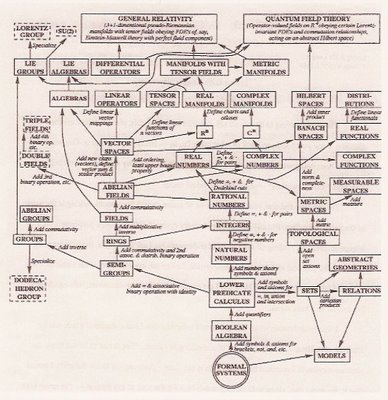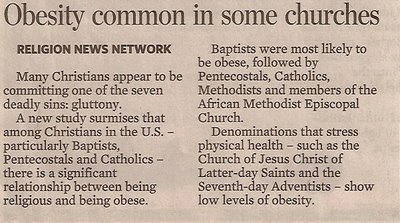 SPEAKING PERSONALLY
SPEAKING PERSONALLYWe’re such weaklings, here in the fast declining America. Me and my wife no exceptions. It’s only 65 degrees in our house and in the mid-50s outside, but my wife just turned on our oil heat for the first time this fall season. I know that Europeans live in much chillier conditions, but we’re spoiled Americans, you see, and we can’t take the damn cold. By the way—I'm in agreement about turning on the heat.
Speaking of conditions, etcetera, more and more, I keep butting up against my past existences. I mean, I keep seeing who I was when I was younger and the conditions I was raised in. You know, for I’ve said it often enough, that I was born during the Great Depression and came into early consciousness during WWII. I rode clanging street cars with woven straw seats when I lived with my grandparents after my folks divorced, and, later, I walked right up to the steps of prop driven airplanes to see people off or greet them. I myself flew in roaring prop driven planes from Antigua BWI to Miami and then into Dayton with all female hostesses, all young and all curvaceous. I road a train sometime around 1946 packed with soldiers returning from the war. My stepmom and I were returning from Des Moines, Iowa to Dayton, Ohio, I think. Of course, Europeans still ride trains a lot, but passenger service has largely disappeared from my mid-America life except back East.
But none of this really gets right down to that experience, my current experience, every person has of suddenly being out of his time and place, of the world’s essence suddenly being completely different from the essence of the world he sensed when he was young, sensually alive. I remember when sights and sound burned themselves into my consciousness, jarring loose, as they entered, cascades of words and feelings that just had to get out. I just had to tell you what I was feeling, like a Jack Kerouac experience of word bop life spinning into and out of him simultaneously. He couldn’t write fast enough sometimes. Now it’s all slower, and the impact of sensory data on my conscious mind has lost its charm, its magic.
Modern life even smells different. No air-conditioning when I was a kid. I recall small mom and pop grocery stores where the clerks stood behind the counter and fetched things for you as you read them from your list. I saw my grandmother chop off a chicken’s head and helped pluck its feathers so that we could eat it. I shucked corn often enough and ate home made ice cream more often than not. I remember the huge, muscular, aproned ice man coming into Grandma's kitchen, with blocks of ice held over his shoulder with ice tongs, to lift ice into the ice box and his chipping off a piece of it for me on hot summer days. And the milk was always delivered in clinking clanking bottles. I can’t begin to tell you the difference between the older men I worked beside in job shops when I was young and the young men I worked beside just before I retired. Those men of my early life knew the Depression first hand. I worked with a couple who described broken marriages because they had to go off and look for work, hoboing around so that their wives and children could get welfare. By the time, the Depression ended, they had no marriage left to speak of and, though not divorced, never went home again. They knew hardship, and most all seemed to have a sort of pro-union, socialist (or at least progressive) outlook on the working man’s lot in life. My Grandfather had that too. And, you know, I may have said this in another posting, I spent a lot of time with my great-grandparents too. Great-Grandpop drove a team of horses to deliver beer for a brewery. Those men were ready to help their fellow men through legislation and didn’t consider poverty a sin. Most of them had been poor themselves.
Still, even listing all these obvious material changes, I can’t convey the feelings I sometimes now have of life passing me by, no matter how hard I run to stay current. I mean, this blogging activity is one current thing and, I believe, puts me in a small percentage of other people nearing 70—this touch of Internet modernity. Still, I can no longer relate easily with younger people. They talk faster, jamb their words up, and my hearing’s going, so that creates a barrier. I feel their language accelerating away, and I no longer “care” if I know the latest turns of phrase or the correct youthful word. And, frankly, most of them, as predicted by my reading, don’t seem to really care what I have to say. I see them blow by me with their heads far away from the old man they’re passing in the rush and press of the coffee shops, worrying about getting and keeping jobs, I think, or that damn boyfriend or girlfriend who seems to be drifting away. But, truly, if I want to be realistic, this is how it should be. This is what reality dictates, this turning over the world to the next generation. But, damn it, I’m not ready to be shouldered aside this easily. Come back here, you, stop and talk to me!
I guess, what I want to say, and I know this is not necessarily true, but it “feels” true, is that even my youth seems simpler than current times, and how can that be—I have no “down on the farm” background, being a city boy, and, talk about insecurity, we moved around a lot up until I entered the 10th grade. I’m no farm boy, craving the simpler life. I thought “The Waltons” was pure corn and craved to live in New York City, still my childhood now beacons at my consciousness like a far away light as a time of peace and tranquility compared to what I feel in these current life conditions. I just can’t believe I’m actually growing old and beginning to experience that universal condition of nostalgia that I’ve heard so often described in books by perceptive and intelligent beings like myself. Even though I resist slipping into this bag, I don’t seem to be able to fully avoid it. And this post has grown a hell of a lot longer than I meant it to be. A little touch of the Kerouac coming back?
PS: My dear wife, when I read her this entry, said it was depressing. I thought it was pretty well written and very realisitic. It wasn’t depressing to me at all. What’s your comment?
















